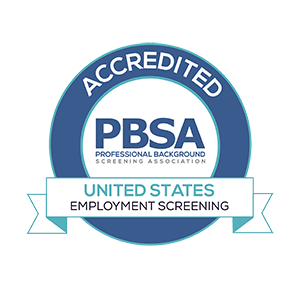A 66-year-old school volunteer in Albuquerque, New Mexico, was charged with sexual abuse of a 5-year-old student in February. Robert Milne, a long-time Rotary Club member, began participating with the Albuquerque Reads program as a volunteer reader in 2012, before the district implemented a volunteer background screening requirement. It is stories like this one that have inspired a growing number of nonprofit organizations to implement background screening checks for current and prospective volunteers.
Screening volunteers is not without complications, however. Organizations that depend on a staff of unpaid volunteers must find a way to implement a responsible selection process without deterring quality help.
Some volunteer applicants feel the inquiries into their credit and criminal histories are excessive (considering the unpaid nature of the positions for which they apply) and an invasion of privacy. They may worry whether or not a nonprofit organization has the resources to ensure sensitive personal data is safe.
Some long-time volunteers subjected to a newly implemented screening process may feel offended. They may view a background check as a sudden and unwarranted suspicion, dismissive of their contributions.
What both volunteers and the organizations that depend on them need to know is that Fair Credit Reporting Act (FCRA) compliance (with regard to background checks) applies to volunteers as well as paid employees.
In July of 2011, the Federal Trade Commission (FTC) issued an expanded and more liberal interpretation of the FCRA’s language: employment purposes. Under the new interpretation, FCRA compliance rules would apply to organizations made up partially or entirely of volunteers, as well.
This means that in order to remain in compliance with FCRA, nonprofit organizations conducting background screening checks for volunteers must:
- Obtain consent prior to the background check;
- Notify the volunteer of negative information before taking any adverse action;
- Notify the volunteer of his/her right to a copy of the report;
- Notify the volunteer of his/her right to appeal any action; and
- Properly dispose of information received in the report.
In order to better ensure the safety of the populations they serve and to maintain trusting relationships with their communities and shareholders, nonprofit organizations must implement responsible volunteer selection processes. In order to remain in compliance with state and federal regulations, they must understand rights, rules, and protections. We can help. Contact us for more information.


Leave a Reply
Want to join the discussion?Feel free to contribute!